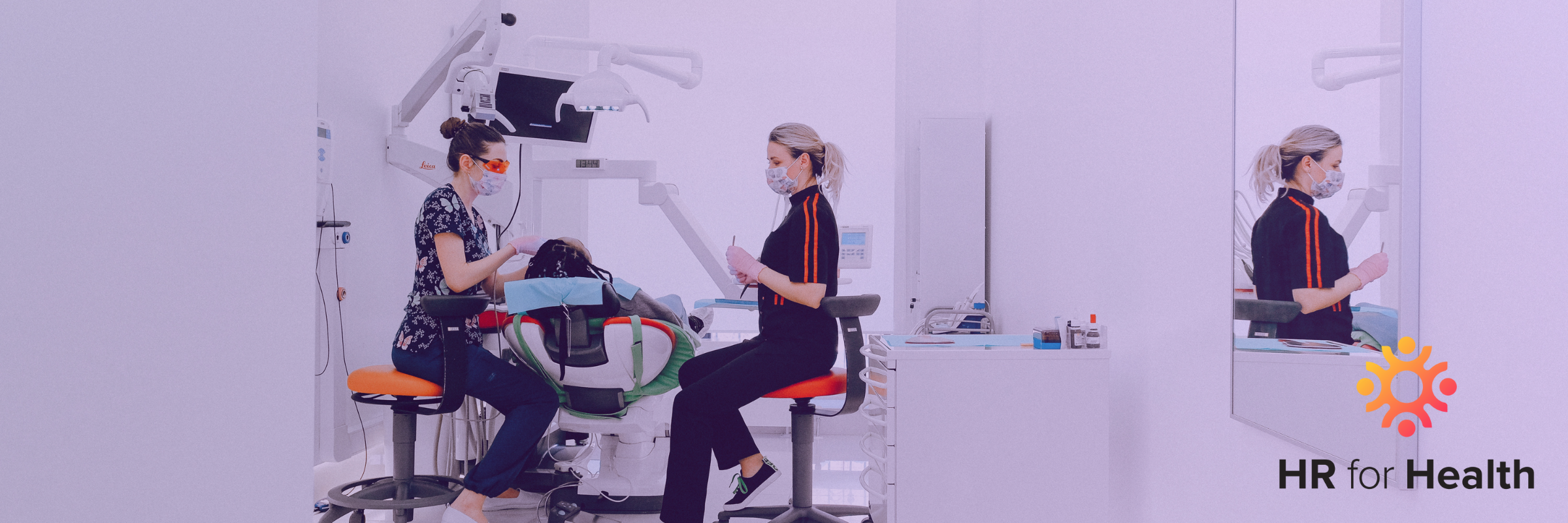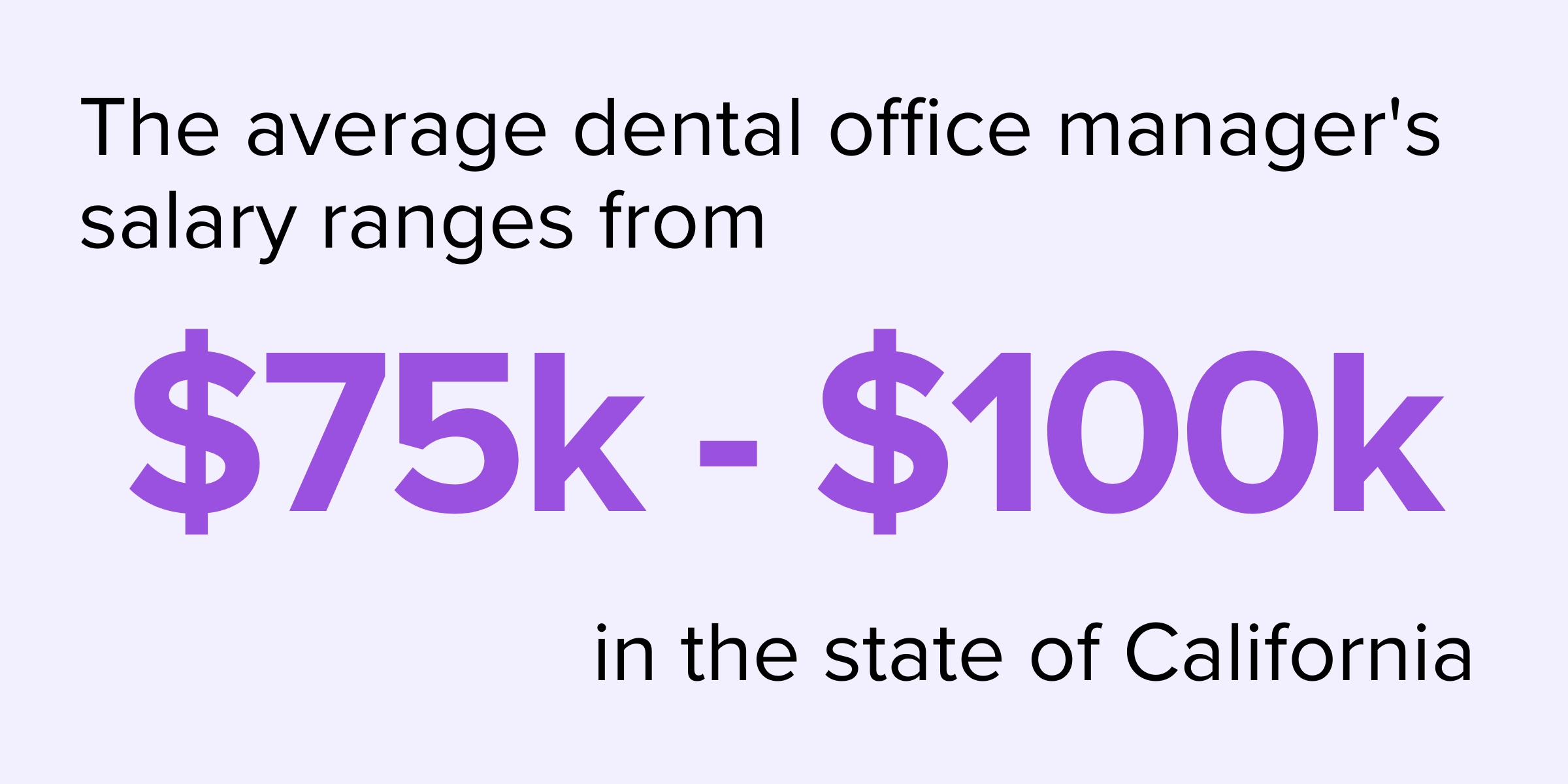In any dental office, smooth operations are the backbone of patient satisfaction and streamlined clinical procedures. Central to achieving this harmony is the role of a dental office manager. Responsible for both administrative and sometimes clinical oversight, this role bridges the gap between the dentist and the administrative team. With a myriad of dental office manager responsibilities, it’s a position of leadership and organization that requires a specialized skill set.
An Overview of the Dental Office Manager Role
A dental office manager wears many hats in the practice, acting as the primary coordinator for both staff and patient-related activities. This role is both strategic, in terms of long-term planning and goal setting, and tactical, with day-to-day operations management.
They often serve as the point of contact for external vendors, insurance companies, and even patients. Their influence and responsibilities span the breadth of the dental practice, ensuring it operates seamlessly and efficiently. Therefore, hiring the right person to be your dental office manager and training him or her appropriately is crucial.
The Vital Importance in Dental Practice
The dental office manager plays a pivotal role in ensuring that the office functions smoothly. They handle the operational challenges, allowing dentists to focus purely on patient care. From overseeing staff schedules to handling patient complaints, their work ensures the practice maintains its reputation and delivers consistent patient experiences.
Without their expertise, many dental practices would struggle to maintain efficiency, which could impact patient satisfaction and the practice’s bottom line.
Balancing Clinical and Administrative Duties
While many dental office managers primarily focus on administrative tasks, a growing number are also well-versed in the clinical aspects of dentistry. This is because many dental office managers have experience as dental hygienists or dental assistants before transitioning into managerial positions. This crucial experience allows the manager to grasp the intricacies of both administrative and clinical operations fully. Their comprehensive understanding ensures that they can bridge the gap between administration and patient care roles, enhancing overall efficiency.
Having clinical insights, in addition to administrative expertise, is invaluable in anticipating the needs of the dental practice. It enables the manager to foresee potential challenges, optimize scheduling, and ensure that necessary equipment and supplies are always on hand. In addition, their dual expertise allows for seamless communication between clinical and administrative staff, ensuring harmonious operations. This balanced approach results in a practice environment that’s both efficient for the staff and welcoming for the patients.
Leading the Team for Optimal Patient Experience
A dental office manager is far more than just an overseer of daily operations. They’re also a leader and mentor for the entire office staff. Their role involves setting the tone for the workplace, ensuring that everyone from the receptionist to the senior dentist feels motivated and valued. A positive, cohesive work environment translates directly to better patient care and experience. In this manner, a dental office manager is also responsible for setting the company culture.
Beyond just daily tasks, the office manager often plays a pivotal role in staff development. They identify training needs, ensure team members have growth opportunities, and actively work to maintain a harmonious office environment. Their leadership is essential in ensuring that the entire team aligns with the practice’s goals, thereby ensuring consistency in service delivery. This consistency and dedication to excellence fosters patient trust and drives loyalty.

Dental Office Manager Responsibilities and Core Duties: What To Know
The dental office manager juggles numerous tasks daily, ensuring the practice runs without a hitch. Their responsibilities are wide-ranging, touching every facet of the dental office’s operations. Every practice is different, and it is important for the dentist to clearly establish the roles and responsibilities of his or her dental office manager.
Some of the most common dental office manager responsibilities include:
1. Scheduling Patient Appointments
Efficient patient scheduling is vital for a dental office’s workflow. The manager ensures there are no double bookings, that patients are reminded of their appointments, and that there’s a smooth flow of patients to avoid long wait times. They also handle emergencies, ensuring patients with urgent needs are accommodated promptly. In doing so, they help optimize the dentist’s time and ensure patient satisfaction.
2. Overseeing Front Desk Operations
The front desk is the first point of contact for patients. The manager ensures this area operates smoothly, from greeting patients to handling phone calls and managing patient records. They train front desk staff to provide exceptional customer service and handle challenging situations. Efficient front desk operations set the tone for the patient’s entire visit, making it a critical area of focus.
3. Managing Financial Transactions and Billing
Financial accuracy is paramount in a dental practice. The dental office manager oversees billing procedures, ensuring that treatments are billed correctly and that insurance claims are processed without delay. They also manage patient payment plans and address any billing discrepancies. Maintaining financial transparency fosters trust between the practice and its patients.
4. Handling Patient Queries and Feedback
Addressing patient concerns is crucial for maintaining a positive reputation. The manager handles any patient feedback, addressing concerns, and implementing suggestions. They also mediate disputes, ensuring that resolutions that satisfy both the patient and the practice are found. This role is pivotal in ensuring patient loyalty and trust.
5. Coordinating with Dental Professionals
Effective communication between the administrative team and dental professionals is vital. The manager ensures that schedules are known, equipment needs are communicated, and any patient-specific information is relayed. By serving as this bridge, they ensure that the clinical and administrative aspects of the practice are in sync.
6. Ensuring Compliance with Health Regulations
Various health and safety regulations bind dental practices. The manager ensures the office remains compliant, from sterilization procedures to patient data protection. They stay updated on any regulatory changes and ensure the practice adapts accordingly. This oversight is crucial for the practice’s legality and patient safety.
7. Employee Recruitment, Training, and Retention
A dental practice’s staff is its most valuable asset. The manager plays a role in recruiting the right talent, training them to the practice’s standards, and retaining them through motivation and growth opportunities. They also handle staff schedules, resolve conflicts, and ensure a harmonious work environment. This focus on the team ensures consistent patient experiences and a thriving practice.
8. Inventory Management and Ordering Supplies
Running out of crucial dental supplies can halt operations. The manager monitors inventory levels, places timely orders, and negotiates with vendors. They ensure that the practice has all it needs, from dental instruments to administrative supplies, ensuring uninterrupted service.

Decoding the Average Salary
A dental office manager’s salary can vary based on experience, location, and the size of the dental practice. On average, dental office managers earn between $75,000 and $100,000 per year in California, but the salary can vary significantly based on the factors above. Benefits may also include bonuses, dental coverage, and other perks. Regular industry research and surveys provide insights into the current salary trends, aiding both hiring practices and those seeking to enter the profession.
Essential Job Requirements
To excel as a dental office manager, strong candidates must possess a unique combination of skills, education, and experience. Some of the key factors to evaluate include:
Educational Background
Most dental office managers have at least an associate’s degree, with many holding bachelor’s degrees in business, healthcare administration, or a related field. Some even possess a dental hygiene or assisting background, providing them with clinical insights. Continued education, such as certifications in dental office management, can also be beneficial.
Necessary Skills and Traits
Dental office managers must be organized, detail-oriented, and adept at multitasking. They need strong communication skills for interactions with both staff and patients. Leadership qualities, decision-making abilities, and a solution-oriented mindset are crucial for this role’s success. Their position often requires them to handle challenges and resolve conflicts, demanding resilience and adaptability.
Experience in Dental or Medical Administration
While not always mandatory, having experience in dental or medical administration is a significant advantage. Such experience provides an understanding of the nuances of patient care, billing, and office operations. Many dental office managers work their way up, starting in roles like receptionists or dental assistants, gradually gaining the experience needed for the managerial position.
Stepping Stones: How to Become a Dental Office Manager
Embarking on a career as a dental office manager requires a combination of the right education and experience. A few key steps for those interested in a career as a dental office manager include:
- Pursue Relevant Education: Begin with an associate’s or bachelor’s degree in a related field. This provides a foundation in business and healthcare principles.
- Gain Experience in a Dental Office: Start in entry-level positions like a receptionist or dental assistant. This hands-on experience is invaluable.
- Seek Specialized Training or Certification: Many institutions offer courses or certifications in dental office management. This can set you apart in the job market.
- Network with Industry Professionals: Join dental or healthcare management associations. This offers opportunities for learning and networking.
- Stay Updated: The world of dental care is ever-evolving. Regularly attending workshops, seminars, or webinars ensures you remain at the forefront of industry trends and best practices.
Taking these steps can pave the way to a fulfilling career, allowing you to influence the growth and success of dental practices.
Continuous Learning and Career Advancement
A dental office manager’s journey doesn’t end once they attain the role. Continuous learning is pivotal for staying updated with industry changes and enhancing one’s skills. Many pursue further certifications, attend seminars, or even take leadership or business management courses. This commitment to growth benefits the practice and can open doors to higher managerial roles or consultancy positions within the dental industry.
The Digital Transformation: Modern Tools for Today’s Managers
The digital age has transformed dental practices. Dental office managers now have a suite of software tools at their disposal, from patient management systems to digital billing solutions. Embracing these tools can streamline operations, improve patient experiences, and even enhance marketing efforts. Staying updated with the latest technological advancements and implementing them effectively is a modern-day imperative for dental office managers.
Challenges and Rewards in Dental Office Management
Like any managerial role, being a dental office manager comes with its set of challenges. Balancing patient needs with operational efficiency, managing a diverse team, and staying compliant with ever-changing regulations are just a few. However, the rewards, both tangible and intangible, are significant. The satisfaction of running a smooth operation, contributing to patient well-being, and leading a motivated team can make the challenges well worth it.
Contact HR for Health for Help With Your Dental Office Administration Needs
Ensuring that a dental practice runs seamlessly requires expertise, dedication, and the right resources. HR for Health is committed to assisting dental offices with their administrative needs, from staffing solutions to operational guidance. With our expertise, you can ensure that your dental practice thrives, delivering exceptional patient care and achieving its business objectives. If you’re a dental office manager or a dentist looking to enhance your office operations, reach out to us today. We’re here to help you succeed.
FAQs: Dental Office Manager Responsibilities
Q1: What are the primary responsibilities of a dental office manager?
A1: The primary responsibilities include scheduling patient appointments, overseeing front desk operations, managing financial transactions and billing, handling patient queries and feedback, coordinating with dental professionals, ensuring compliance with health regulations, employee recruitment, training, retention, and managing inventory and ordering supplies.
Q2: Can a dental office manager have clinical duties?
A2: Yes, while primarily focused on administrative tasks, some dental office managers with backgrounds as dental hygienists or dental assistants may also have clinical duties. Their clinical insights can significantly enhance the practice’s operations and patient care.
Q3: What skills are essential for a dental office manager? A3: Essential skills include strong organizational and multitasking abilities, excellent communication, leadership qualities, decision-making capabilities, a solution-oriented mindset, and resilience. Proficiency with dental software and administrative tools is also crucial.
Q4: How does one become a dental office manager? A4: Becoming a dental office manager typically involves obtaining relevant education, such as an associate’s or bachelor’s degree in business or healthcare administration, gaining experience in dental or medical administration, seeking specialized training or certification, and continuously learning and networking within the industry.
Q5: What are the challenges faced by dental office managers? A5: Challenges include balancing patient needs with operational efficiency, managing a diverse team, staying compliant with regulations, and adapting to technological advancements. Effective problem-solving and adaptability are key to overcoming these challenges.
Q6: What are the rewards of being a dental office manager? A6: Rewards include the satisfaction of contributing to patient well-being, leading a motivated team, improving practice operations, and potentially advancing to higher managerial roles. The role offers a unique blend of administrative and sometimes clinical contributions to the dental practice’s success.
Q7: How important is continuous learning for a dental office manager? A7: Continuous learning is crucial for staying updated with industry changes, enhancing managerial skills, and embracing new technologies. Pursuing further certifications, attending seminars, and engaging in professional development activities are ways dental office managers can continue to grow in their roles.
Q8: How can HR for Health assist dental office managers? A8: HR for Health can assist with staffing solutions, operational guidance, compliance with regulations, and implementing efficient administrative practices. Their expertise supports dental office managers in ensuring the practice operates smoothly and meets its business objectives.
For dental office managers looking to enhance their skills or dental practices seeking to improve their operations, HR for Health offers the resources and support needed to achieve excellence in dental office management.


